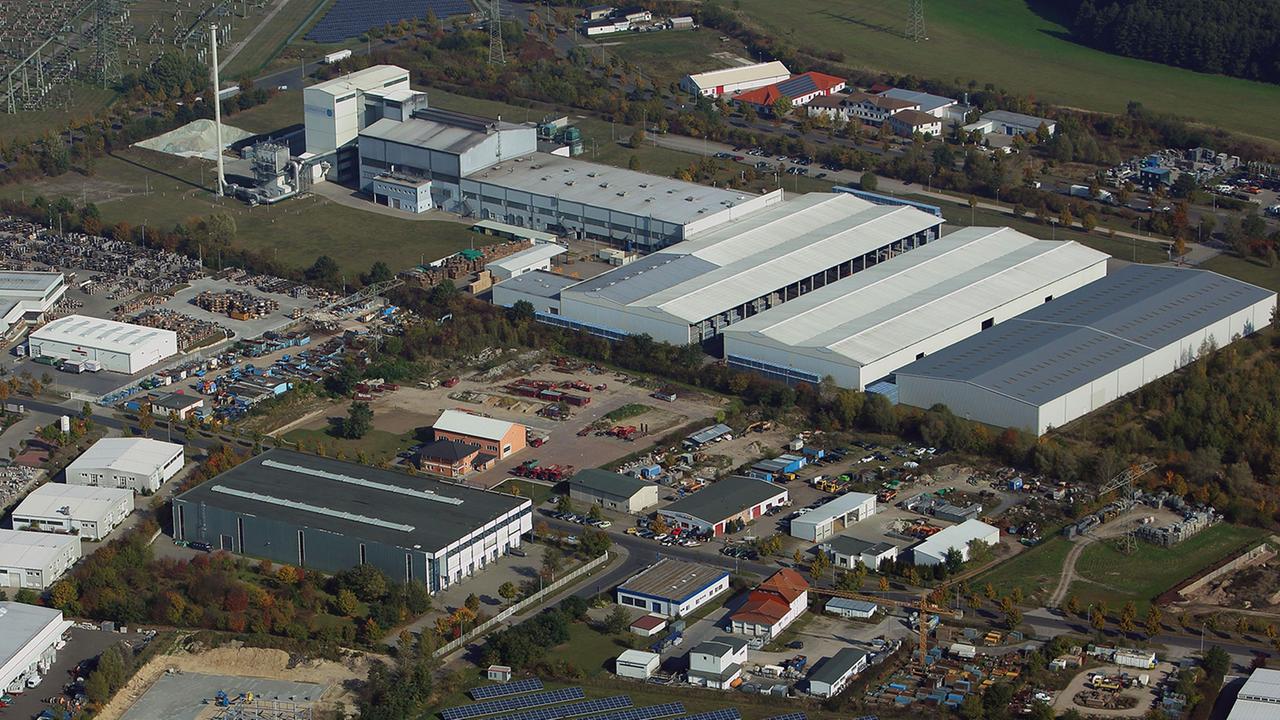background
The BDI industrial association is holding its annual summit in Berlin – a routine program with guests such as Chancellor Scholz and opposition leader Merz. The mood in small and medium-sized businesses is often bad.
Kleinkarlbach in the Palatinate: It doesn't get much more rural than this region. The local community, which is home to almost 1,000 people, is surrounded by vineyards. The Palatinate Forest is not far away. There is a carpentry shop, a hairdresser, several wineries and, at the edge of town, a medium-sized industrial company: The Chemical Products Company – Gechem for short – has had its headquarters here since 1861.
Managing director Martina Nighswonger is already out and about in the company early. “I've heard about the Industry Day in Berlin. There are interesting topics on the agenda and there will probably be some bold statements. But I'm not expecting anything concrete,” she says of the summit in the distant capital. “I wonder whether they even know what's going on in medium-sized companies these days.”
“The general conditions are making our work increasingly difficult,” criticizes Gechem Managing Director Martina Nighswonger.
“It's getting worse and worse”
Gechem produces tabs for appliance descalers, toilet cleaners, dishwashing detergents and coffee cleaners based on its own recipes. The company has its own development department for this purpose. The company also fills substances for large companies, grinds them and packages the material.
“We are well represented on the market,” says Nighswonger. “But the general conditions are making it increasingly difficult for us to work. And it is getting worse,” the managing director sums up the developments of the past few years. Since Corona, there have been ongoing problems with supply chains, inflation has driven up prices, and energy prices are still far too high compared to other countries.
Structural crisis and the burden of bureaucracy
“On top of that, there is the burden of bureaucracy. Small and medium-sized companies can no longer cope with this financially or in terms of personnel,” says Nighswonger. As a current example, she cites the European Union's so-called NIS II regulation on cyber security – a 189-page draft bill.
“Experts estimate that this regulation alone will cost companies in this country three billion euros. That is roughly the amount made available by the Growth Opportunities Act. So the money is being eaten up before it even arrives – for paperwork,” says Nighswonger, annoyed, and lists other pending administrative tasks: such as the European Supply Chain Act and the German Supply Chain Due Diligence Act, which is already in force.
The banks also have pages of questions about the taxonomy – the proof of sustainable business practices. And there is also proof of the CO2 footprint and the sustainability indicators for online tools.
Nighswonger draws a bitter overall conclusion: “This is not an economic crisis, but a structural crisis. The location is slipping further and further down the road. The Federal Republic is only leading in terms of wages and energy costs and taxes. But we have the undisputed gold standard when it comes to bureaucracy.”
Germany as a business location falls behind
Daniel Stelter doesn't have to think long when asked about the state of the German economy. He is an economic expert, non-fiction author and has been providing strategic advice to companies for years. “Germany is falling further and further behind in the competition for locations. This is shown by the new study by the Swiss university IMD. Germany is in 24th place in the ranking – once again worse than last year,” explains Stelter.
The IMD not only takes gross domestic product and productivity into account in the study, but also political, social and cultural aspects. This list of countries is intended to show which economies are doing the best job of increasing domestic prosperity. For Stelter, it is clear that Germany is now also losing ground in its traditional sectors such as automobiles, chemicals and mechanical engineering. When it comes to future topics such as digitalization, German companies have long been lagging far behind.
“We are seeing the result of a completely botched energy policy after around twenty years. Prices were far too high in this country even before the war against Ukraine – and they still are today,” says Stelter. In addition, the years of Merkel's chancellorship were lost years for the economy: There was too little investment in infrastructure, the welfare state was expanded even further, explains the economic expert. Added to this is the worsening of demographic developments, the level of education continues to fall, and the migration policy is wrong. “The traffic light coalition has continued this course and even accelerated it in some areas,” says Stelter.
Adjustments in the energy and labour markets
What remains to be done? For Stelter, the most important thing is to have cheaper energy quickly: This could be done by restarting nuclear power plants that are still operational. Instead of building new fossil gas power plants, coal-fired power plants should be used more. The additional CO2 could be filtered out by so-called capture, says Stelter.
To ensure more workers and skilled workers, older people should be kept in the labor market – through significant tax rebates. And: The education system must be reformed – for example in daycare centers and primary schools, in order to provide better education at an early age, especially for children with a migrant background.
“Small and medium-sized businesses are no longer being listened to”
Martina Nighswonder's conclusion goes far beyond the Industry Day in Berlin. “Small and medium-sized businesses are no longer being listened to. Migration and company bankruptcies are being acknowledged with a shrug of the shoulders. The coalition lives in its own world. Would the opposition do better? I don't know.”
The economy has also been increasingly struggling with an image problem in recent years. Companies are increasingly viewed negatively – as are profits, says Nighswonger. But without profits there can be no investment, and the location is suffering more and more as a result. With sales in the high double-digit millions per year, Gechem is aiming for a break-even point in 2024.
“This cannot be satisfactory in the long term. My team and I are putting our heart and soul into our work, but politicians and authorities are throwing one obstacle after another in our path.”
Hans-Joachim Vieweger, ARD Berlin, tagesschau, 24.06.2024 15:20





